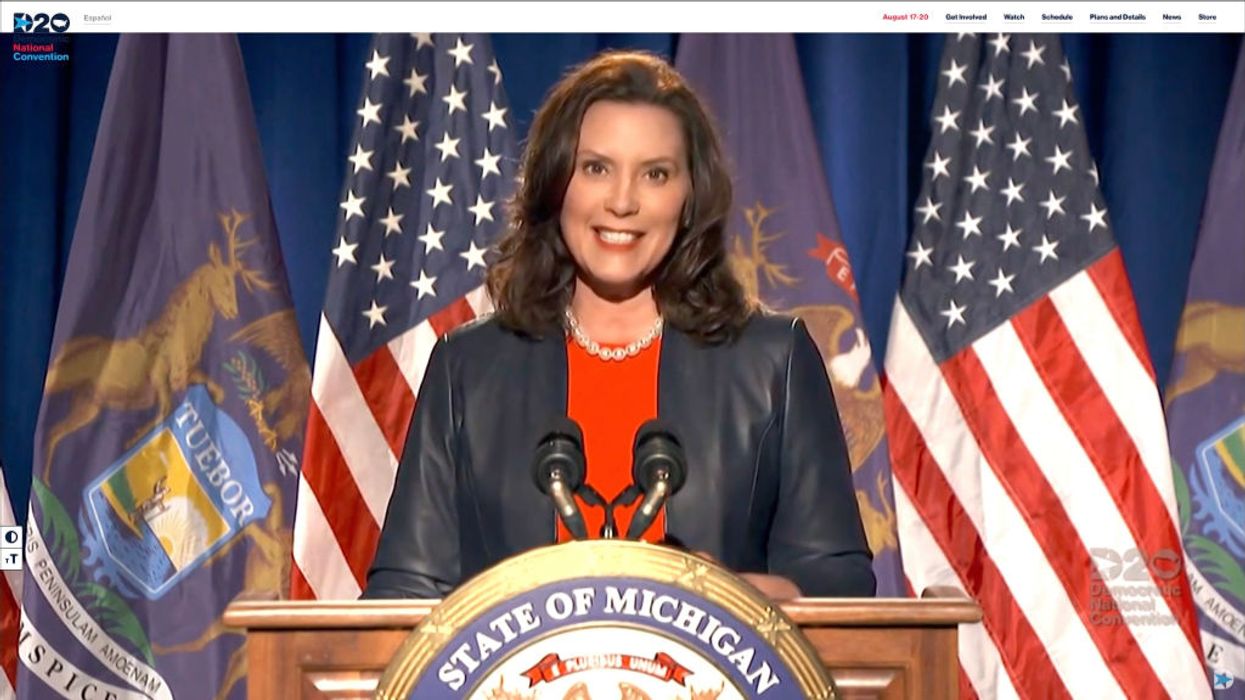The end of a week that brought the country within 40 days of the election included a smorgasbord of legal developments underscoring how the rules governing the coming surge of mailed votes are far from finalized.
The Republican lieutenant governor asked the Justice Department to investigate North Carolina's brand new easements on absentee voting. A federal appeals court revived witness requirements on ballots mailed in South Carolina. Philadelphia's top election official asked Pennsylvania to scratch at the last minute a requirement for returning such ballots inside secrecy envelopes. And Michigan decided to give local clerks a small head start on processing absentee ballots.
The series of moves Thursday were the latest in the pitched partisan battle over mail-in voting. The first two reflect the Republican effort to make the rules tougher, while the other two reflect the Democratic view that those rules should be simpler.
These are the details:
North Carolina
Lt. Gov. Dan Forest's appeal to Attorney General William Barr is the latest development in a controversy that's swirled since the state Board of Elections signed off Tuesday on the settlement of a lawsuit filed by progressive groups attempting to lessen the burden on voters.
The agreement, which still must be approved by a judge, would give voters in the swing state the chance to fix errors in absentee ballots that would otherwise cause them to be rejected. It also would allow mail ballots that were postmarked by Election Day to be counted as long as they arrive within nine days.
The next day, the two GOP members of the election board resigned, claiming they were deceived about the details of the settlement agreement, which had been endorsed by the board unanimously. The lieutenant governor's letter accuses the Democratic members of the panel, and Democratic Attorney General Josh Stein, of colluding to subvert the intent of the General Assembly and asks Barr to investigate whether any federal laws have been violated.
The battle for the state's 15 electoral votes and the outcome of a GOP-held Senate seat are too close to call.
Pennsylvania
The Democratic chairwoman of Philadelpia's election board warned in a letter to leaders of the GOP-controlled General Assembly that as many as 100,000 votes across the battleground state could be rejected in November. Lisa Deely cited a sweeping state Supreme Court decision about election rules from last week that requires absentee ballots to be placed in an internal secrecy envelope before going into the outer envelope used to return them.
Deely wrote that she fears voters will forget to use the internal envelope, leaving these so-called "naked ballots" to be rejected by election officials and disenfranchising enough voters to decide the presidential race. President Trump carried the state's 20 electoral votes last time by just 44,000 votes but former Vice President Joe Biden has been narrowly ahead in most recent polls.
Deely asked legislators to pass an emergency bill dropping the requirement, which is not likely to happen.
Nationwide, record numbers of absentee ballots are expected to be mailed in or dropped off, many by first-time voters unfamiliar with the system. About a third of the states mandate secrecy envelopes.
Election officials across the country are expressing worry that voters will not correctly follow the rules that apply in their own state. Thousands of ballots in the primary elections did not count because of missing signatures and other defects.
South Carolina
The vote was 2-1 at the 4th U.S. Circuit Court of Appeals to block a lower court ruling against the state's witness requirement. Judge Michelle Childs had declared earlier in the week that the mandate violated citizens' right to vote and had little impact on preventing election fraud.
The appeals decision puts a hold on that ruling while the legal challenge to it is reviewed. That means a witness signature will likely be needed for voting by mail in the general election. Trump is a lock to carry the state but Republican Lindsey Graham's bid for reelection has become one of the hottest Senate races in the country.
Several voters and Democratic organizations had filed a lawsuit challenging the signature requirement.
Michigan
The bill passeed by the GOP Legislature gives clerks an extra 10 hours, on the day before Election Day, to begin processing absentee ballots.
Election officials had been asking for the change because of the huge number of absentee ballots that are expected in one of the premier presidential battlegrounds, with 16 electoral votes on the line.
The legislation also requires election officials to contact voters if their ballot has been rejected because the signature on it does not match the one on file. And it increases security around the drop boxes where people can deposit mail-in ballots.
About 2.4 million voters have requested absentee ballots so far in Michigan, and officials expect a record number of mailed-in ballots will be cast. The extension is important for Democrats because Trump has signaled he plans to rely on the results available election night to decide whether to claim victory.




















Trump & Hegseth gave Mark Kelly a huge 2028 gift